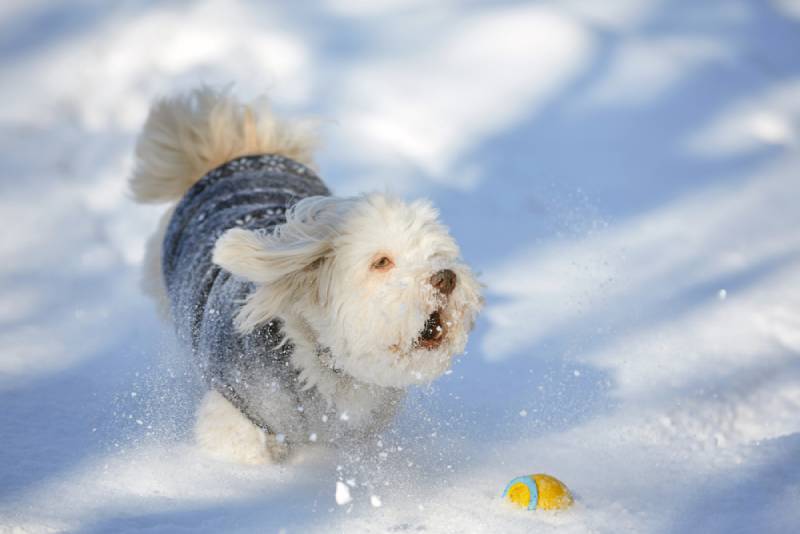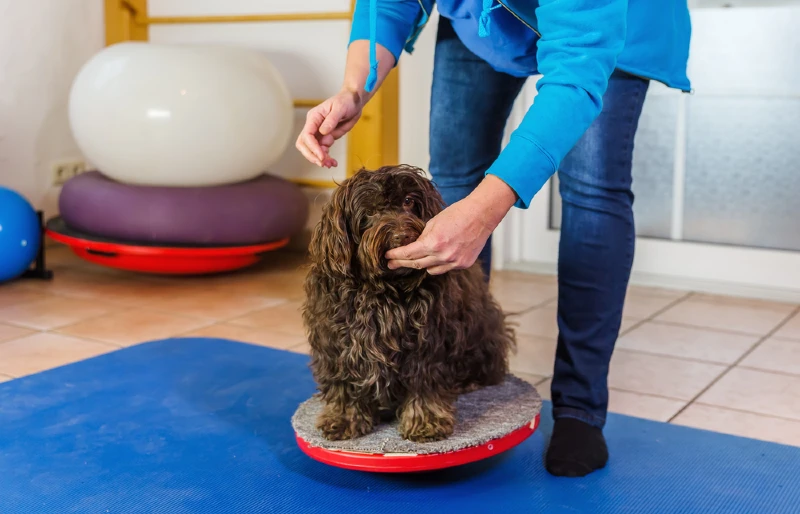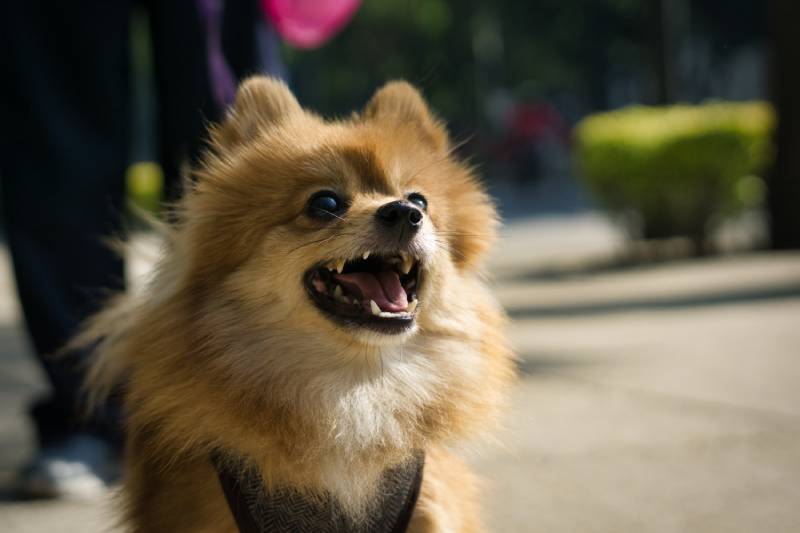Do Havanese Bark a Lot? Read If You Plan to Adopt One!

Updated on

Most small dog breeds are well-known for their tendency to bark. They’ll yap until your neighbors are knocking on the door. Fortunately, Havanese dogs are much quieter than many other small breeds, though they can have their noisy moments. While they’ll bark at squirrels in the yard or a guest at the door, they’re otherwise quiet, which makes them good watchdogs.
Like all dogs, though, each Havanese has their own distinct personality. You might have a Havanese that never makes a noise at all and another that refuses to be silent! Understanding why your Havanese barks and how to prevent the behavior from becoming a habit will help you control your dog’s barking so you can keep them quiet when necessary.
The 5 Reasons Havanese Dogs Bark
No matter what breed they are, dogs rarely bark for no reason. While it’s not always easy to tell what set them off, you can be sure that something caught their attention. The Havanese is no different, and while they’re a relatively quiet breed, they’re not afraid to show off their vocals.
1. Bad Habits
As with most small creatures, small dog breeds are generally considered cuter than large breeds. That often means that things that we find bad form in large dogs—like barking excessively—tend to get inadvertently encouraged in small breeds, like Chihuahuas, Pomeranians, or Havanese.
Unfortunately, by paying attention to unwanted behavior because your Havanese dog is too adorable to resist, you’re reinforcing the barking. This quickly turns an otherwise innocent bark into a troublesome bad habit that will take more time to correct.

2. Boredom
They might be small but the Havanese are incredibly intelligent. They love to spend time with their family members and adore having a puzzle to challenge themselves with. If they haven’t had enough playtime or things to challenge their minds with, though, they can get bored. Barking can quickly turn into something that they use to alleviate their boredom or just to get your attention.
3. Loneliness
Havanese are companion dogs that are energetic and playful and love everyone. Most of all, though, they adore their family members and hate being alone for long periods. Their friendliness and willingness to follow people everywhere have earned them the nickname, “Velcro dog.” That said, they can be prone to developing separation anxiety.1 While this can lead to destructive or anxious behavior and relieving themselves inside the house, it can also result in excessive barking.

4. Prey Instinct
They might be a toy breed, but Havanese dogs have a prey drive just like bigger dogs do. It shows itself most often when they spot an animal that’s smaller than they are. Squirrels or gophers in the yard can quickly set off your peaceful dog. Whether they’re playing in the yard or watching from the window, a small critter in their territory is bound to earn a few excited barks.
5. Visitors
Although they don’t look it, the Havanese are great watchdogs. They’re not the most vigilant breed out there, but they’ll watch over their home and alert you to visitors at the door by barking. Unlike dogs that keep barking once the guests have entered, though, your Havanese will likely bark until they’re greeted too and then settle down for cuddles with your visitor.
The 5 Ways How to Stop Your Havanese Dog From Barking

Once you know why your Havanese is barking, you can work on preventing the behavior. Most Havanese dogs don’t bark much, but you can still preempt the behavior by training them to understand when to be quiet. Starting obedience training as early as possible also helps prevent the formation of bad habits.
Here are a few tips that you can try to stop your Havanese from barking, whether they’re doing it excessively or not.
1. Be Consistent
As with all obedience training, consistency is essential. For the most effective results, you need to reinforce the behavior that you want every time your dog barks. This means stopping them from barking with the “quiet” command and rewarding your dog when they go quiet.
2. Ignore the Barking
It sounds counterintuitive, but ignoring your Havanese when they bark is the best way to stop the behavior. If they’re barking to get your attention, paying attention to them—whether it’s to coo over their cuteness or yell at them to be quiet—is giving them the reaction that they want.
Instead, wait for them to go quiet before giving them attention. In many cases, this can be difficult, especially if your Havanese has developed a habit of barking excessively. As your Havanese barks, though, there are bound to be short moments when your dog falls silent. It’s these that you want to praise. With consistency and patience, your Havanese will learn to be quiet more often and bark less.
3. Provide Positive Reinforcement

Like consistency, positive reinforcement is key when it comes to training your Havanese. They are generally eager to please and highly intelligent, but they also enjoy knowing that they’ve made you happy. Giving them a special treat when they do something right or playing a quick game to break up your training sessions is the best way to show your dog that you’re proud of them.
4. Provide Activities
As an intelligent breed, the Havanese can get bored if they don’t feel challenged, and barking is a good way of relieving tension. They’re also an active breed that loves to play, so you need to ensure that they have enough activities to keep their mind active. This can be in the form of training sessions or a game of fetch. You can also test your dog with puzzle toys if you need to keep them busy while you’re at work.
5. Teach the “Quiet” Command
They might not be a barky breed, but the “quiet” command is still the best way to tell your Havanese when you want them to be silent and put an end to any unwanted barking.
You can partner this command with “speak” too, so you can get your dog to bark on command. That way, they can still enjoy a good bark every now and then, just under controlled circumstances.
Are Havanese Dogs Loud Barkers?
If you’re not familiar with the Havanese, their bark might take you by surprise. Unlike what their tiny size suggests, they have a deep and loud bark that can often make them seem much bigger than they are. While this is a great way to fend off unwanted guests, your invited visitors might be taken aback when they meet the tiny owner of such a gruff greeting!
Final Thoughts
Compared to other small dog breeds that are known to bark excessively, the Havanese are relatively quiet. Some individuals might bark more than others, but overall, most Havanese dogs will only bark at critters in the yard or when there’s a guest at the door.
Just like all dogs, though, they can learn bad habits if you reward them for barking. It’s easy to inadvertently teach them that barking is okay, especially if you reinforce the behavior by paying attention to their adorableness when they’re making noise. Instead, focus on rewarding quiet behavior, and teach your dog the “quiet” and “speak” commands so they can still enjoy barking when you want them to.
Featured Image Credit: Jumpstory













